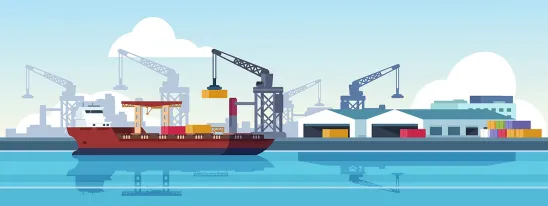As 2019 came to a close, vessel owners and operators scurried to comply with the global sulphur limit reductions mandated by MARPOL Annex VI, which became effective for enforcement purposes on January 1. However, as the rapid and unexpected global spread of the COVID-19 pandemic brought the world to halt, enforcement of Annex VI moved to the back burner in the United States, as the Environmental Protection Agency (the EPA) announced temporary policies outlining enforcement discretion based on noncompliance. The EPA terminated those policies on August 31, 2020, announcing that it would not exercise enforcement discretion for noncompliance occurring after that date.1 With that date having been passed, it is now vital that vessel operators and owners perform compliance audits as a best practice to ensure compliance with environmental regulations.
Background
The International Maritime Organization (IMO) created the International Convention for the Prevention of Pollution from Ships (MARPOL) in November 1973. After a series of tanker accidents in 1976–1977, the MARPOL Protocol of 19782 was created with the sole purpose of protecting the marine environment against ship pollution and discharge. Since the 1990s, the United States has been enforcing MARPOL, which is implemented in the United States by various federal regulations including Act to Prevent Pollution from Ships (APPS).3 Under APPS, it is a crime for any person to knowingly violate MARPOL, APPS and other federal regulations dealing with pollution from ships. APPS applies to all U.S. commercial vessels and foreign commercial vessels operating within U.S. waters or while at port under U.S. jurisdiction.
The EPA and U.S. Coast Guard work together in enforcing MARPOL and APPS violations. Historically, the majority of the violations have stemmed from the following:
1. bypassing oily water separators when dealing with bilge water or the discharge of sludge overboard rather than by incineration or disposal ashore;
2. unauthorized alteration to the piping arrangements in the engine room;
3. the use of flexible hoses;4
4. suppression of alarms designed to detect concentrations of oil in excess of the permitted 15 ppm;
5. falsifying entries in oil record books and/or failure to record illegal discharges that have taken place in international waters; and
6. presenting falsified records (i.e., “making false statements” to representatives of the U.S. government).
The Long Reach of MARPOL
Individuals and companies who violate MARPOL, APPS and other federal regulations may be subject to civil and/or criminal liability. In recent years, the dramatic increase in the severity of penalties for noncompliance has demonstrated the U.S. government’s commitment to the protection of the marine environment. In addition to bringing charges for APPS and MARPOL violations, federal prosecutors have charged vessel owners, operators, managers and/or officers for statutory violations under the Clean Water Act, False Statements Act, the River and Harbors Act and the Sarbanes-Oxley Act of 2002. The government’s ability to utilize multiple statutes and regulations increases the potential liability to companies and the commensurate fines and penalties they will have to pay if determined to be noncompliant.
Enforcement
The civil penalties for noncompliance are significant. A vessel owner or operator can be liable up to $25,000 for each violation.5 Civil penalties for the making of false, fictious or fraudulent statements can reach $5,000 for each statement or representation made.6 Although civil penalties and fines generally range from $100,000 to $5,000,000, they have gone much higher in egregious cases.7 Moreover, companies can also be required to implement formal and government-supervised environmental compliance plans which may also include paying community service fines. The cost of comprehensive compliance programs can easily exceed the cost of a fine. The aggregate financial penalties associated with recent pollution cases demonstrate the old axiom that an ounce of prevention is worth a pound of cure.
Enforcement Examples:
- On December 9, 2014, in the case of United States v. Carbofin, the owner and operator of the commercial vessel Marigola entered into a plea agreement for illegal discharge of oily sludge and failure to maintain the Oil Record Book. Carbofin paid a $2,150,000 civil penalty and made a settlement payment of $600,000 to the National Marine Sanctuary Foundation. Additionally, the four whistleblowers who reported the violations were rewarded $1,075,000.
- On May 3, 2019, in the case of United States v. Avin International Ltd. and Nicos I.V. Special Maritime Enterprises, defendants pled guilty to obstruction of an agency proceeding, failure to record discharge of oil under the Clean Water Act and negligent discharge of oil under the Clean Water Act. Under the plea agreement, both companies were required to pay a $4,000,000 criminal fine, serve a four-year probation term and implement an environmental compliance plan. The Master and Chief Officer of Nicos each pled guilty to making a material false statement and were each required to pay fines of $ 10,000.
APPS Whistleblower Enhancements—A Guarantee
With the enactment of the APPS whistleblower enhancements, MARPOL and APPS compliance has become increasingly more important to vessel owners and operators. APPS guarantees a whistleblower a recovery “equal to if not more than ½”8 of any fine paid to the government for information leading to a conviction. Any potential fear that an employee might have to step forward and report noncompliance must be weighed by the opportunity to collect millions of dollars as part of a successful whistleblower settlement against his or her employer.
Are You Ready?
Now that September 1 has passed, vessel owners and operators should focus on compliance with MARPOL and APPS regulations. MARPOL compliance auditing directed by counsel is one of the best ways companies can properly assess their MARPOL compliance and reduce their potential substantial risk. VP has a full-service Environmental practice group that can assist companies with every aspect of environmental compliance.
1 See https://www.epa.gov/enforcement/enforcement-policy-guidance-publications.
2 MARPOL includes six technical annexes aimed at controlling and eliminating marine pollution from a variety of sources such as oil, noxious liquid substances (NLS), packaged substances, sewage, garbage and air.
3 Annexes I, II, V and VI have been incorporated into U.S. law by APPS, and Annex III is incorporated into U.S. law by the Hazardous Materials Transportation Act (HMTA). Annex IV has not been ratified in the U.S., but U.S. has equivalent regulations. Other countries that are signatories to MARPOL have similar legal regimes for deployment and enforcement of MARPOL.
4 For clarification, vessel owner and operators were found in violation for using flexible hoses to make unapproved temporary alterations to disposal systems for wastewater that bypass the permanently installed and legally mandated discharge monitoring and control systems.
5 33 U.S.C. §1908(b)(1).
6 33 U.S.C. § 1908(b)(2).
7 In the case, United States v. Overseas Shipping, Oversees Shipping Group, Inc. (OSG) pled guilty to 33 felony convictions including violations of the Clean Water Act, the Oil Pollution Act and APPS. As a result, OSG had to pay a $27.8 million criminal fine as well as $9.2 million in organizational community service fines for marine environmental projects.
8 33 U.S. Code § 1908(b)(2)



 />i
/>i

